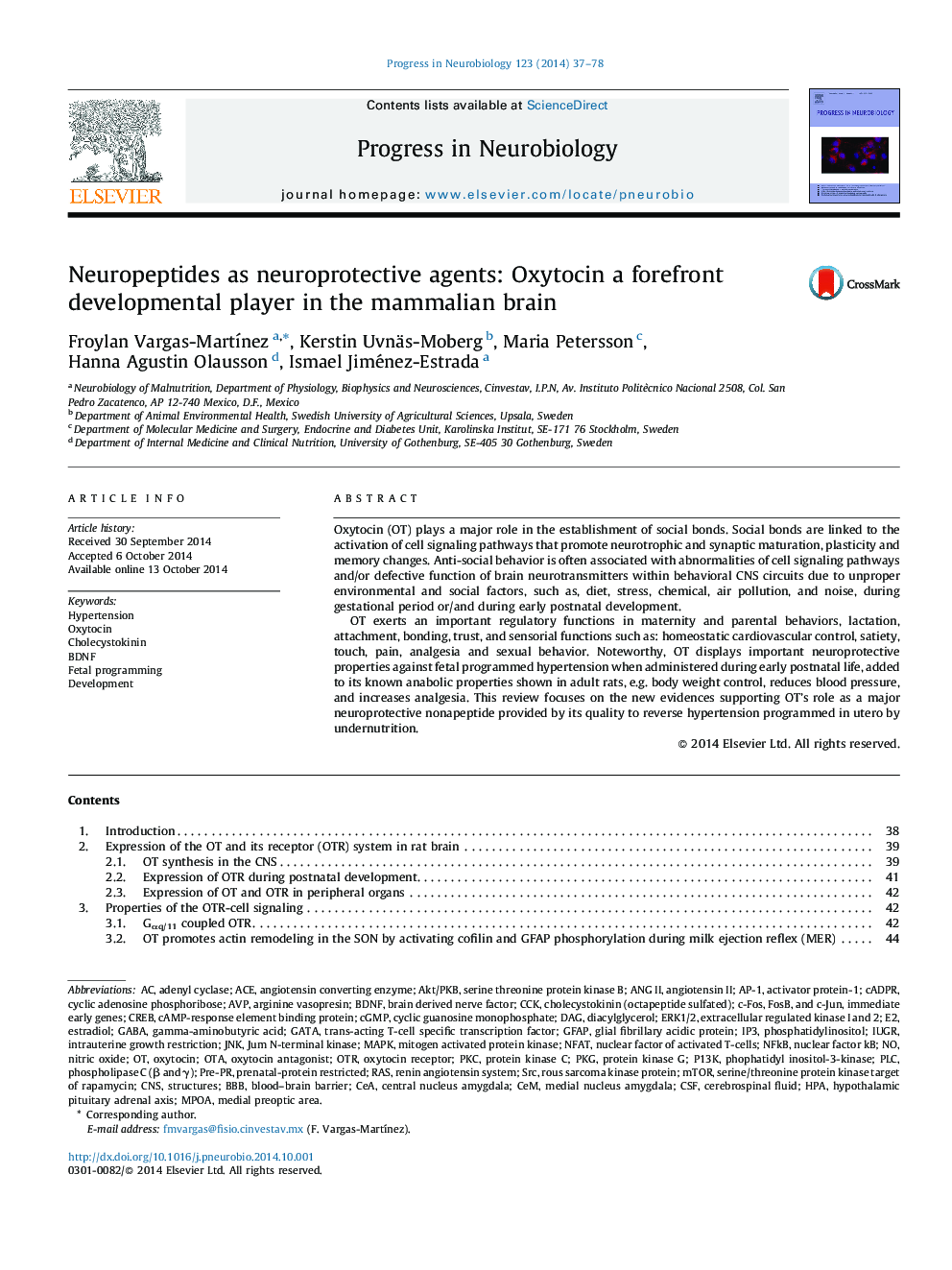| Article ID | Journal | Published Year | Pages | File Type |
|---|---|---|---|---|
| 6286477 | Progress in Neurobiology | 2014 | 42 Pages |
â¢Oxytocin's role to reverse programmed hypertension acquired in utero by undernutrition.â¢Oxytocin's role as neuroprotective hormone and its property to prevent hypertension development.â¢Oxytocin's putative role to save babies, that suffered intrauterine growth restriction (IUGR's babies), from cardiovascular diseases and behavioral disorders, i.e., ADHD, depression, etc. (inference).
Oxytocin (OT) plays a major role in the establishment of social bonds. Social bonds are linked to the activation of cell signaling pathways that promote neurotrophic and synaptic maturation, plasticity and memory changes. Anti-social behavior is often associated with abnormalities of cell signaling pathways and/or defective function of brain neurotransmitters within behavioral CNS circuits due to unproper environmental and social factors, such as, diet, stress, chemical, air pollution, and noise, during gestational period or/and during early postnatal development.OT exerts an important regulatory functions in maternity and parental behaviors, lactation, attachment, bonding, trust, and sensorial functions such as: homeostatic cardiovascular control, satiety, touch, pain, analgesia and sexual behavior. Noteworthy, OT displays important neuroprotective properties against fetal programmed hypertension when administered during early postnatal life, added to its known anabolic properties shown in adult rats, e.g. body weight control, reduces blood pressure, and increases analgesia. This review focuses on the new evidences supporting OT's role as a major neuroprotective nonapeptide provided by its quality to reverse hypertension programmed in utero by undernutrition.
Graphical abstractDownload high-res image (147KB)Download full-size image
